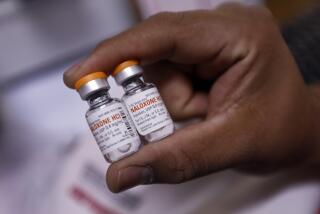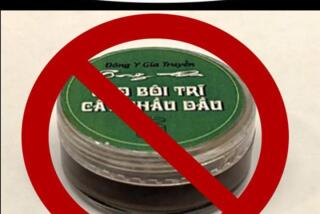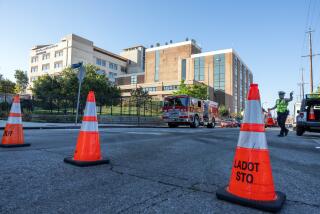UCI Medical Center to correct problems with drug-infusion pumps
Officials at UC Irvine Medical Center have promised to correct problems found with the operation of drug-infusion pumps after an inspection by state and federal health regulators.
The inspection was prompted by hospital officials who reported the death of a kidney transplant patient who had received too much medication from a drug pump. A subsequent review by two internal and four external physicians found that the medication error did not cause the patient’s death.
But during the inspection, the California Department of Public Health and the federal Centers for Medicare and Medicaid Services found that patients were jeopardized because medication was being administered by new infusion pumps without adequate staff training. In addition, no policies and procedures for their safe use had been established.
Hospital officials maintain that the staff was adequately trained.
According to the survey findings, the kidney transplant patient who died in July received 100 milligrams of Thymoglobulin in one hour, instead of over the recommended six hours, because the pump had not been programmed to prevent an overdose. In this case, the doctor administered the incorrect dosage, but inspectors said the machine should have been set up to prevent that.
In another incident in June, according to the report, a 10-year-old patient received more than 30 times the prescribed dose of Precedex, a sedative, because a pump was incorrectly programmed. The patient survived but required medications to reverse the drop in his heart rate.
The hospital presented a plan of correction, which included allowing only trained registered nurses to program the pumps. Additional steps must also be taken for more than the standard dosage to be administered.
According to a letter sent to staff members by hospital Chief Executive Terry A. Belmont, the hospital filed its plan this week outlining the new policies and plans to retrain some staff and to conduct random audits to ensure compliance.
“We are committed to providing a safe environment for patients, and I believe our approach to quality performance improvement and patient safety is leading edge,” Belmont wrote. “The report from CMS reminds us that continued improvement and vigilance are essential, as is the need to maintain transparent policies and practices to sustain excellence.”
Hospital officials also said that they have established a pump safety committee and patient safety steering committee.
The federal agency did not threaten to cut off Medicare funds as a result of the issues identified in the report.
More to Read
Start your day right
Sign up for Essential California for news, features and recommendations from the L.A. Times and beyond in your inbox six days a week.
You may occasionally receive promotional content from the Los Angeles Times.







